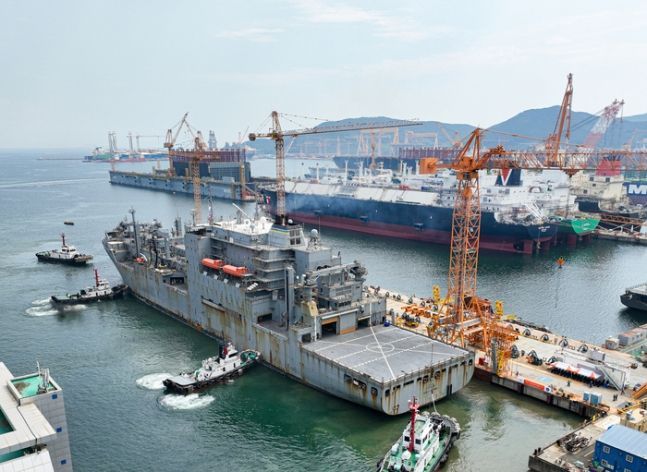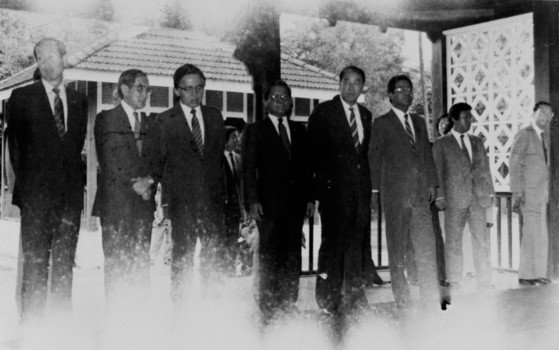
나는 일찍부터 언급했다. 러시아를 자극하여 시민들을 단결시키면 얻을게 없다고 말이다. 러시아와 친러 국가들을 제외하고 러시아를 잘 아는 국가나 인물은 거의 없다. 이는 러시아에 대한 막연한 거부감, 러시아를 알고 싶지도 알려고도 하지 않기 때문이다. 서구가 러시아를 건드리면 왜 득이 되지 않는지, 서구의 역사를 보면 알 수 있다.
영국의 경우, 고대 브리튼 섬에 켈트족이 침입해 브리트니아 원주민들을 정복하고 자리 잡았으며 이어 카이사르가 이끄는 로마군이 브리트니아 속주로 만들면서 켈트족은 스코틀랜드로 밀려났다. 이후 게르만 족 대이동이 시작되면서 브리트니아 속주는 덴마크에서 건너온 유트족, 독일의 니더작센에서 건너온 색슨족, 독일 앙글리아에서 건너온 앵글로족, 기존의 켈트족으로 4등분화 되었다. 앵글로와 색슨은 통합되었고 유트족까지 여기에 합류했지만 이어 덴마크인의 조상인 데인족의 침략을 받아 데인족의 영웅인 크누트 대왕의 지배를 받는다. 이후 앵글로색슨의 알프레드의 통치 체재를 거쳐 앵글로색슨 7왕조 시대라는 대혼란기가 영국을 지배했다. 이 때까지의 영국 역사가 기원전부터 서기 1,000년에 이르는 역사다.
11세기 러시아는 키예프 루스가 전성기를 이루던 시기이다. 그리고 같은 시기 영국은 노르만족인 정복왕 윌리엄에 의해 노르만 왕조가 수립된다. 이 시기 영국은 키예프 루스와 지중해 건너 크림 일대에서 교역을 했다. 키예프의 함선 또한 영국으로 들어가 모피를 팔았다. 러시아와 영국은 애초부터 사이가 나쁜 관계는 아니었던 것이다. 그리고 나서 키예프 루스가 몽골제국에게 정복되면서 영국과의 관계는 자연스례 단절되었고 키예프의 중심 정치체가 모스크바로 옮겨가면서 모스크바 대공국의 시대가 시작된다. 모스크바가 몽골로부터 독립한 이후, 이반 4세 때 러시아와 영국은 다시 관계를 수립한다. 영국의 상선이 좌초되어 발트해 지역을 떠돌고 있던 것을 러시아 측이 구해주었고 이반 뇌제는 영국인 무역상들에게 사실상 무관세 무역이라는 상당한 수준의 특권을 부여했다.
영국인들은 이 때부터 볼로그다, 모스크바, 야로슬라블, 아스트라한, 카잔 등 러시아 각지에 무역관과 거류지를 설립했다. 이반 4세는 유럽으로 국가를 팽창시키고 대외적으로는 강력한 오스만투르크도 견제하면서 같은 기독교 국가들과 정략적 동맹을 위해 당시 영국의 여왕이었던 엘리자베스 1세에게 청혼까지 했었다. 물론 엘리자베스 1세는 이반 4세를 야만족의 슬라브족 족장 정도로 여기고 무시하면서 결혼은 성사되지 않았다. 1584년 아르항겔스크 무역항이 건설된 것은 순전히 영국과의 교역 때문이었다. 이로 인해 영국과 러시아 사이의 무역은 더 활기를 띄게 되었다. 근세 당시 러시아는 직접 보유한 상선이 없었고 모든 화물을 외국 선박으로 운송해야 했는데 이러한 배경 하에서 영국인 무역상인의 함선들을 이용하게 되면서 두 나라의 경제 무역은 마치 악어와 악어새처럼 서로 공생하는 관계가 되었다. 앵글로색슨과 슬라브족으로 대표되는 러시아는 매우 절친한 관계였던 것이다.
그러나 영국에 매우 우호적인 모스크바 대공국은 이반 4세가 후사없이 사망하고 국가 최악의 대혼란 상태로 빠지게 되면서멸망의 길로 접어들었다. 이후 로마노프 왕조가 수립되면서 영국과의 관계도 삐걱거리기 시작한다. 우선 1646년 영국 상인들에 대한 무관세 혜택이 폐지되면서 두 나라의 경제 무역의 우호적인 관계가 흔들리기 시작했다. 그러나 두 나라의 우호적인 관계를 회복한 때는 바로 표트르 대제 때였다. 영국과 비교해 너무 낙후한 러시아의 산업 체제를 개혁하기 위해 영국의 산업 형태를 받아들이기 시작했고 예카테리나 대제 때는 산업혁명 중에 있던 영국의 문물을 받아들였다. 이 때부터 영국의 산업혁명이 크게 힘을 받기 시작했던 것이 러시아의 천연자원과 원자재가 영국 국내로 들어오면서 공업화가 가속화 되었던 것이다.
영국은 조선용 목재, 범포, 밧줄을 생산할 때 사용하는 삼, 우랄산맥에서 생산되는 철을 수입하여 공업화를 가중시켰으며 당시에도 화물은 주로 영국과 네덜란드 선박으로 수송되었기 때문에 무역에 대한 이익은 대개 영국 상인들에게 돌아가면서 영국의 산업혁명은 급속도로 발전하게 된 것이다. 19세기 초 나폴레옹이 영국을 대상으로 대륙봉쇄령을 내렸을 당시 러시아가 강력 반발했던 이유는 러시아 입장에서 영국이 가장 중요한 교역국 중 하나였기 때문이었고 영국 또한 러시아의 원자재가 없으면 공장 자체가 돌아가는 것이 어려웠기 때문에 영국을 고립시키려던 나폴레옹이 그 점을 잘 알고 있었기 때문이었다. 게다가 러시아는 해군을 육성할 때 주로 스코틀랜드인 용병에 의존하던 편이었고, 이러한 연유로 적지 않은 러시아인 귀족 가문이 스코트계 기원을 두고 있었으며 로마노프 왕실 또한 영국의 조지 5세와 러시아의 니콜라이 2세는 서로 사촌관계였을 정도 가까웠다.
두 나라의 교역은 러시아의 1차 산물이 영국으로 수출되고 영국의 공산품이 러시아로 수입되는 구조였다. 러시아는 체르노젬 일대에서 생산되는 밀을 영국으로 대량 수출하였는데 이는 러시아의 주요 외화 공급원이 되었음은 물론 영국에서 수입하는 식량 자원 중 상당 부분을 차지하게 된다. 영국은 미국과 러시아를 비롯한 해외에서 밀이 저가에 수입되면서 밀 농장들이 양을 키우는 목양지로 바뀌고 이후 잉여 노동력이 급증하면서 이른바 산업 혁명을 가속화시킬 수 있었던 것이다. 영국의 산업혁명은 러시아의 원자재가 없었다면 실패했을 것이고 해가 지지않는 대영제국 또한 없었을 것이며 서구 유럽의 급속한 발전 또한 없었을 것이다. 즉, 17세기부터 서구는 러시아의 자원에 의존했기 때문에 현재처럼 강대국으로 남을 수 있었던 것이다. 그래서 서구나 유럽은 러시아의 표트르 대제나 예카테리나 대제를 은인으로 생각해도 모자를 판에 아예 이 자체를 생각도 하지 않고 있다. 한편 러시아인들은 표트르 대제나 예카테리나 대제로 인해 서구 문물의 도움을 받았다는 사실을 인정하고 있다.
서구가 러시아의 자원으로 산업혁명에 성공하고 동양에 역전하여 현재까지 선진국으로 자리잡고 있는 발판이 되었는데 이 같은 현상이 지금이라고 다를까? 독일이 러시아의 천연가스와 석유에 대한 의존없이 앞으로 얼마나 버틸 수 있을까? 이건 독일 뿐 아니라 전 유럽이 마찬가지다. 300년 동안 러시아의 원자재를 받아온 유럽이 러시아의 원자재 없이 현 상태 유지가 가능할까? 다들 유럽이 숱한 위기에 있었어도 위기를 버티는 저력이 있어 그 힘으로 극복할 수 있다 하지만 그 유럽의 숱한 위기도 러시아의 원자재가 있었기에 위기 관리 능력 및 유럽인들의 저력이 생겨날 수 있었던 것이다. 물론 미소 냉전 체제 때 러시아의 지원이 끊기긴 했지만 과거 제국주의의 유산으로 극복해왔었다. 제국주의의 유산의 거의 사라진 현재, 이제 유럽에 러시아 원자재가 들어가지 않는다면 어떻게 될까? lukybaby7@gmail.com
*필자/ 정길선.
노바토포스 회원, 역사학자, 고고인류학자, 칼럼니스트, 러시아 과학아카데미 유라시아 고고인류학연구소 연구교수.
*아래는 위 기사를 '구글 번역'으로 번역한 영문 기사의 [전문]입니다. '구글번역'은 이해도 높이기를 위해 노력하고 있습니다. 영문 번역에 오류가 있을 수 있음을 전제로 합니다.<*The following is [the full text] of the English article translated by 'Google Translate'. 'Google Translate' is working hard to improve understanding. It is assumed that there may be errors in the English translation.>
The Industrial Revolution in Britain with Russian Raw Materials
Columnist Jeong Gil-seon
I have mentioned this before. There is nothing to be gained by provoking Russia and uniting its citizens. Except for Russia and pro-Russian countries, there are few countries or people who know Russia well. This is because of a vague aversion to Russia and the fact that they do not want to know or attempt to know Russia. We can see why the West does not benefit from provoking Russia by looking at Western history.
In the case of Britain, the Celts invaded the ancient island of Britain, conquered the native Brittanians, and settled there. Then, when the Roman army led by Caesar made Britain a province, the Celts were pushed out to Scotland. After that, as the Great Migration of Germanic peoples began, the province of Britain was divided into four groups: the Jutes who came from Denmark, the Saxons who came from Lower Saxony, Germany, the Anglos who came from Anglia, Germany, and the existing Celts. The Anglos and Saxons were united, and the Jutes joined them, but then they were invaded by the Danes, the ancestors of the Danes, and were ruled by the Danish hero Cnut the Great. After that, the Anglo-Saxon Alfred's rule system passed, and the Anglo-Saxon Seven Dynasties period, a period of great chaos, ruled England. Until then, the history of England spanned from BC to AD 1,000.
In the 11th century, Russia was at the height of Kievan Rus's power. At the same time, the Norman dynasty was established in England by the Norman King William the Conqueror. During this period, England traded with Kievan Rus' across the Mediterranean to the Crimean region. Kievan ships also entered England to sell furs. Russia and England were not on bad terms from the beginning. Then, when Kievan Rus' was conquered by the Mongol Empire, relations with England were naturally severed, and the central political body of Kiev moved to Moscow, beginning the era of the Grand Duchy of Moscow. After Moscow gained independence from the Mongols, Russia and Britain reestablished relations under Ivan IV. The Russian side rescued British merchant ships that had run aground and were drifting in the Baltic Sea, and Ivan the Terrible granted British merchants a significant level of privilege, virtually duty-free trade.
From this time on, the British established trading posts and residences in various places in Russia, including Vologda, Moscow, Yaroslavl, Astrakhan, and Kazan. Ivan IV proposed to Elizabeth I, who was then the queen of England, in order to expand his country into Europe and check the powerful Ottoman Turks externally, and to form a strategic alliance with fellow Christian countries. Of course, Elizabeth I regarded Ivan IV as nothing more than a barbarian Slavic chieftain and ignored him, so the marriage did not take place. The Arkhangelsk trading port was built in 1584 solely for trade with Britain. This led to a more active trade between Britain and Russia. During the early modern period, Russia did not have its own merchant ships and had to transport all cargo by foreign ships. Against this backdrop, as they began to use the ships of British merchants, the economic trade of the two countries became a symbiotic relationship, like a crocodile and a crocodile bird. Russia, represented by the Anglo-Saxons and the Slavs, had a very close relationship. However, the Grand Duchy of Moscow, which was very friendly to Britain, entered a path of destruction when Ivan IV died without an heir and the country fell into the worst state of chaos. Afterwards, with the establishment of the Romanov Dynasty, relations with Britain also began to falter. First, when the duty-free benefits for British merchants were abolished in 1646, the friendly economic trade relations between the two countries began to waver. However, the friendly relations between the two countries were restored during the time of Peter the Great. In order to reform Russia's industrial system, which was too backward compared to Britain, Russia began to accept British industrial forms, and during the time of Catherine the Great, Britain accepted British culture during the Industrial Revolution. From this time on, the British Industrial Revolution began to gain momentum, as Russian natural resources and raw materials were brought into Britain, accelerating industrialization. Britain imported hemp, which was used to produce shipbuilding lumber, sailcloth, and rope, and iron produced in the Ural Mountains, and industrialization was accelerated. At the time, cargo was mainly transported by British and Dutch ships, so the profits from trade mostly went to British merchants, and Britain's Industrial Revolution developed rapidly. The reason Russia strongly opposed Napoleon's Continental System against Britain in the early 19th century was because Britain was one of Russia's most important trading partners, and Napoleon, who was trying to isolate Britain, was well aware of this, as Britain also had difficulty operating its factories without Russian raw materials. In addition, Russia relied mainly on Scottish mercenaries when developing its navy, and for this reason, many Russian noble families had Scottish origins, and the Romanov royal family was so close that George V of England and Nicholas II of Russia were cousins.
The trade between the two countries was structured so that Russian primary products were exported to England and British manufactured goods were imported to Russia. Russia exported large quantities of wheat produced in the Chernozem region to England, which became Russia's main source of foreign currency and accounted for a significant portion of food resources imported from England. As wheat was imported at low prices from overseas, including the United States and Russia, England was able to accelerate the so-called Industrial Revolution by changing wheat farms into sheep farms and subsequently increasing the surplus labor force. The Industrial Revolution in England would have failed without Russian raw materials, and there would have been no British Empire on which the sun never sets, and there would have been no rapid development in Western Europe. In other words, the West has been able to remain a great power since the 17th century because it has depended on Russian resources. That is why the West and Europe do not even think about Peter the Great or Catherine the Great as their benefactors. On the other hand, Russians acknowledge the fact that they received help from Western civilization because of Peter the Great or Catherine the Great.
The West succeeded in the Industrial Revolution with Russian resources, overtook the East, and became the foundation for establishing itself as an advanced country to this day. Is this phenomenon any different now? How long can Germany survive without relying on Russian natural gas and oil? This is not only true for Germany, but for all of Europe. Can Europe, which has received raw materials from Russia for 300 years, maintain its current status without Russian raw materials? Everyone says that Europe has had many crises, but it has the ability to endure crises and can overcome them with that strength. However, the many crises in Europe were also due to the raw materials from Russia, which allowed the crisis management ability and the Europeans’ resilience to develop. Of course, during the Cold War, Russian support was cut off, but they were able to overcome it with the legacy of past imperialism. Now that the legacy of imperialism has almost disappeared, what would happen if Russian raw materials were no longer available in Europe?




![누구를 위한 ‘남북 2국가론’일까?…임종석 발언 파문 [미드나잇 이슈]](https://img.segye.com/content/image/2024/09/23/20240923515739.jpg)